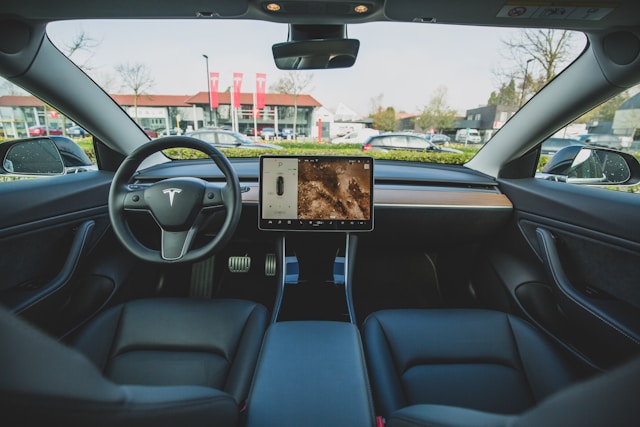Car Insurance in the Netherlands
Car insurance is an essential consideration for vehicle owners, providing financial protection against the costs associated with car accidents, theft, and other damages. In the Netherlands, as in many countries, having car insurance is not just a matter of financial prudence but also a legal requirement. Here’s an overview of car insurance in the Netherlands, focusing on the types available, the coverage they offer, and key points that vehicle owners, including expats, should be aware of.
Types of Car Insurance in the Netherlands
WA (Wettelijke Aansprakelijkheid) Insurance
- What It Covers: This is the minimum legal requirement and covers damage that your car might cause to other vehicles, property, and individuals. It does not cover damage to your own car.
- Who It’s For: Mandatory for all car owners. It’s suitable for drivers who own an older car that might not warrant comprehensive coverage.
WA + Beperkt Casco (Limited Comprehensive) Insurance
- What It Covers: This includes WA coverage plus additional protection against theft, fire, storm damage, and collisions with animals, among others. It does not cover all forms of damage to the owner’s car, especially if the owner is at fault.
- Who It’s For: A middle ground, suitable for drivers seeking some level of protection for their own vehicle without the premium of a full comprehensive insurance.
WA + Volledig Casco (Allrisk or Fully Comprehensive) Insurance
- What It Covers: Offers the most extensive coverage, including damage to your own car even if you are at fault, alongside the protections offered by WA and WA + Beperkt Casco.
- Who It’s For: Recommended for new or valuable cars, or for drivers seeking maximum protection against a wide range of incidents.
Key Considerations for Car Insurance
- No-Claims Bonus: The Dutch car insurance system rewards safe driving. The longer you go without making a claim, the higher your no-claims bonus, leading to lower premiums. However, this can vary significantly between insurers.
- Coverage for Expats: Expats in the Netherlands should ensure their car insurance policy includes coverage for driving across Europe, especially if they plan to travel.
- Additional Coverage: Consider additional coverages such as legal assistance, breakdown assistance, and coverage for damage to or theft of personal items inside the car.
- Comparing Offers: Premiums can vary widely based on factors like age, driving history, car model, and chosen coverage. Use comparison websites to find the best deal.
Applying for Car Insurance
The process involves selecting the desired level of coverage, providing details about yourself and your vehicle, and possibly details about your driving history. Many insurers allow you to apply online, offering instant coverage. For expats, some insurers might require a Dutch driving license, while others may accept an international driving license or a license from your home country, depending on their policies.

Factors that influence car insurance premiums
Understanding the factors that influence car insurance premiums in the Netherlands is crucial for expats looking to insure their vehicles. This knowledge not only helps in budgeting for the costs associated with owning and operating a vehicle but also in making informed decisions when selecting an insurance policy. Here’s how various factors can affect your car insurance premiums as an expat in the Netherlands:
Type of Coverage
The level of coverage you choose has a direct impact on your insurance premiums. Basic third-party liability insurance (WA) is the least expensive option but offers limited coverage. Opting for comprehensive insurance (WA + Volledig Casco) results in higher premiums due to the broader range of protections it offers, including damages to your own car.
Value and Type of Vehicle
The make, model, and age of your vehicle significantly influence insurance costs. Newer, more expensive, and high-performance vehicles typically incur higher premiums because they are more costly to repair or replace. Conversely, older or less valuable cars tend to have lower insurance costs.
Driving History
Insurers consider your driving record when determining premiums. A clean driving history without accidents or violations can lead to lower premiums, thanks to no-claims discounts. Expats may need to provide documentation from their previous insurer to qualify for these discounts in the Netherlands.
Usage of the Vehicle
How you use your vehicle affects your insurance premiums. Cars used for commuting or business purposes are often seen as higher risk due to increased time on the road, potentially leading to higher premiums compared to vehicles used solely for personal use.
Deductible Amount
The deductible, or eigen risico, is the amount you agree to pay out of pocket before your insurance coverage kicks in. Choosing a higher deductible can lower your monthly premiums, but it means you’ll pay more in the event of a claim.
Location
Where you live and park your car can influence insurance costs. Urban areas with higher traffic density and theft rates may have higher premiums compared to rural areas. Additionally, having private parking or a garage can sometimes reduce the risk assessment and, consequently, the premium.
Insurance Provider
Premiums vary across different insurers due to their unique underwriting criteria, customer service offerings, and claims processing efficiency. It’s essential to compare quotes from multiple providers to find the best rate for your needs.
Additional Coverages
Adding extra coverages like legal assistance, roadside assistance, or coverage for driving abroad can provide valuable protection but will increase your overall premium.
Conclusion
Car insurance in the Netherlands offers various levels of protection, from basic liability coverage to comprehensive plans. Choosing the right insurance requires balancing the cost of premiums with the level of risk you’re willing to accept. For expats, it’s important to consider how your car insurance fits into your broader financial and legal responsibilities while living in the Netherlands.